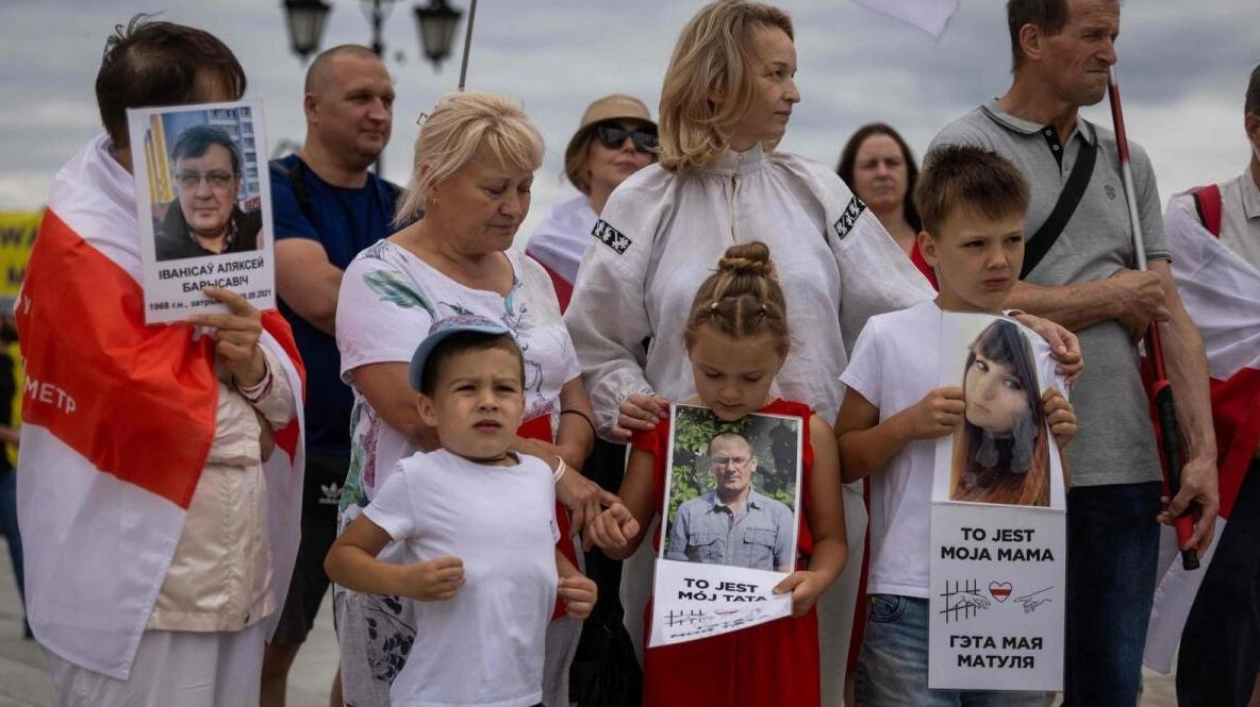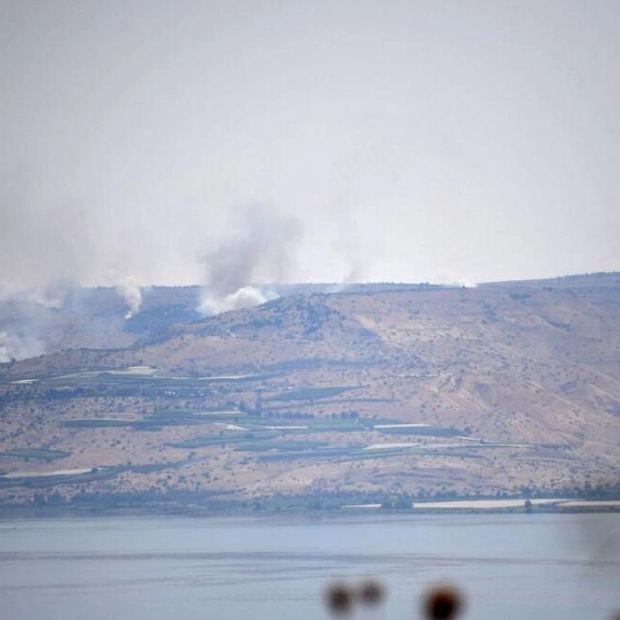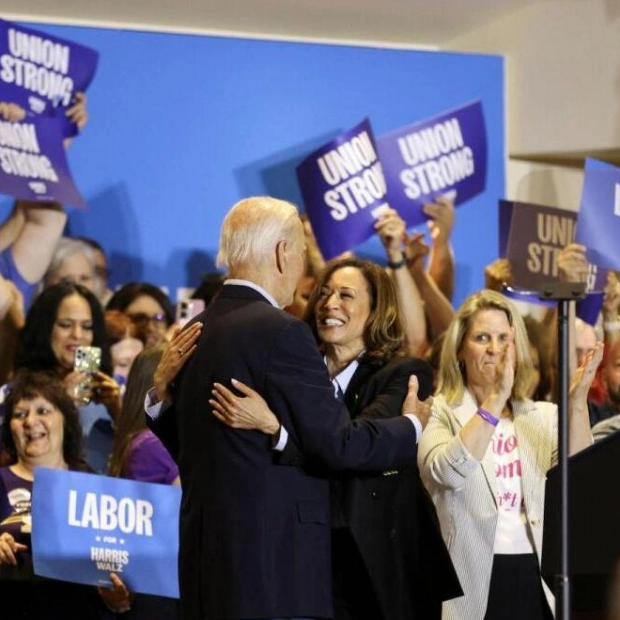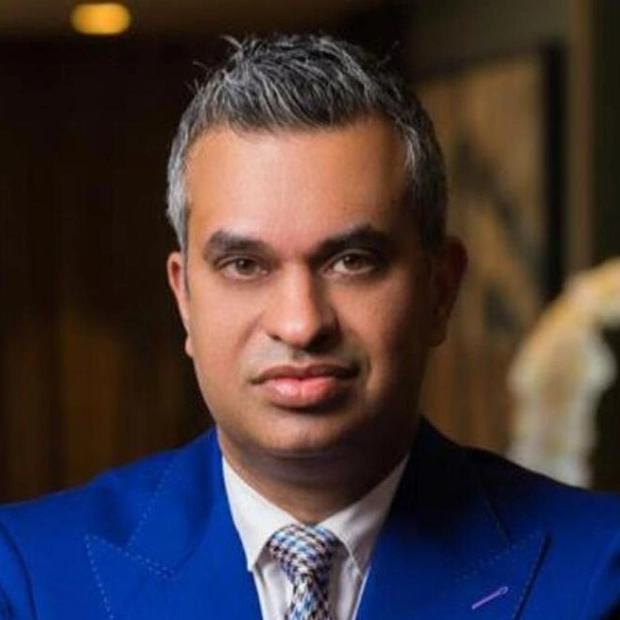In September 2020, Hanna Kanavalava made a daring escape from Belarus, crossing into Ukraine on foot at night, accompanied by her two grandchildren, Ivan and Anastasiya. 'That's when Ivan asked me, 'Grandma, is Mum in prison?' And that's when I told him the truth,' Hanna recounted. Now aged nine and seven, Ivan and Anastasiya have been living in exile for nearly four years, separated from their parents who were imprisoned in Belarus for opposing President Alexander Lukashenko.
These children are among hundreds who have been torn from their families due to Lukashenko's harsh crackdown on dissent. This crackdown followed the 2020 protests, which posed a significant threat to Lukashenko's 25-year rule. Ivan and Anastasiya's mother, Antanina Kanavalava, was a staff member of opposition leader Svetlana Tikhanovskaya, who claimed victory in the presidential elections that year. International observers and rights groups have criticized the elections as fraudulent, with Lukashenko, who has been in power since 1994, declared the winner with 80 percent of the vote.
The Belarusian authorities responded to the protests with force, leading to widespread arrests and increased repression. Antanina was arrested in September 2020 and sentenced to five and a half years in prison, while her husband, Siarhei Yarashevich, received a combined sentence of six years and three months. The Viasna human rights group estimates that there are 1,400 political prisoners in Belarus. Just four days after Antanina's arrest, Hanna, 60, took the children to Ukraine and then to Poland, which has become a refuge for many Belarusian refugees.
Hanna feared that if the children remained in Belarus, the authorities might take custody of them, potentially using them as leverage against their parents. The children are allowed to write letters to their parents, though communication with political prisoners is heavily restricted and censored. During an interview with AFP, Anastasiya read aloud from one of her letters: 'Hi Mum, how are you? I'm doing fine. I came fourth in the chess tournament. A big, big, big hug.' They are permitted a maximum of a five-minute video call with their mother once a month, supervised by prison guards.
Hanna is concerned that her grandchildren, particularly the younger Anastasiya, are beginning to forget their parents. Despite this, Anastasiya, who dreams of becoming a doctor or veterinary surgeon to earn a lot of money, expressed her desire to use her earnings to care for her parents and buy them a ticket to Warsaw upon their release. Her mother, Antanina, has developed serious eyesight problems in jail and is scheduled for release next year, barring any additional sentences.
Psychologists are concerned about the emotional and psychological impact on the children of political prisoners. Volha Vialichka, a psychologist from Belarus, has met with 60 such children and describes them as experiencing a lot of 'pain, despair, and anger.' Many of these children appear prematurely adult-like, highly sensitive to reminders of their situation, where they feel 'alone, without mum and dad.'
Despite their safety in Poland, Hanna and the children face ongoing instability due to lack of stable accommodation and income, relying on support from the Belarusian and Ukrainian diaspora and the Polish state. Ivan recently experienced trauma again when moving to a new apartment in Warsaw, having nightmares about his parents being taken away by soldiers and encountering a wolf in a forest. Hanna regularly takes the children to demonstrations organized by the Belarusian opposition in exile.
Since May 2023, Hanna has also been caring for two additional children, Marcel and Timur Zhuravlyov, aged five and 15. Their mother, Olga Zhuravlyova, a Belarusian political opponent, died in Poland last April due to depression and a drug overdose. Timur expressed, 'My mum died because there was nobody there for her.' Marcel, who initially cried a lot upon realizing his mother's death, now avoids discussing it. Hanna notes that Timur initially appeared like a 'scared kitten' but has since gained confidence. Their experiences have made the children stronger, forming a tight-knit team, though no one can replace their mother.






